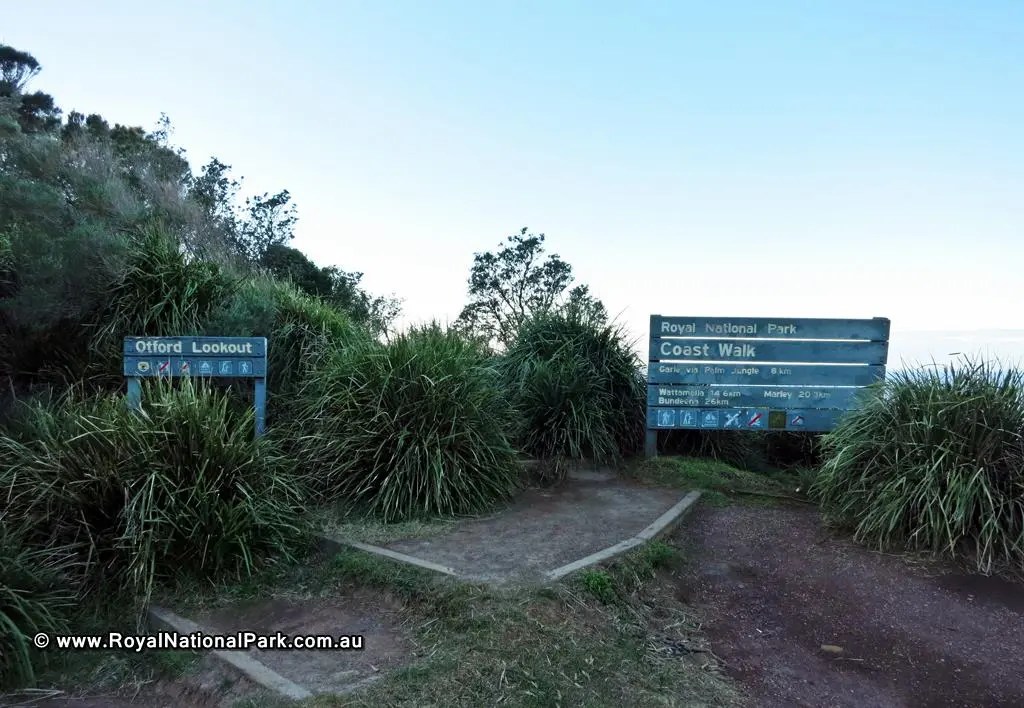
The Royal National Park’s Coast Track is a 27 kilometre hike stretching the entire eastern side of the park from the Otford lookout on Lady Wakehurst Drive to the end of Beachcomber Avenue in Bundeena. Sometimes mistakenly called the Coastal Walk Royal National Park, the Coast Track is the park’s longest and arguably most famous bushwalking trail.
Although different access points allow hikers to walk specific sections along this track for shorter day trips, walking the entire Coast Track will usually take at least two days. It is possible to for the walk to be completed in just one day by hikers who are very fast and very fit, but a far more enjoyable way to complete the journey is to stop overnight at the North Era campground. Be aware that camping does require booking a site and paying for a permit in advance.
The walk can be undertaken either from north to south or vice versa – starting at Otford will give you a shorter first day of walking, while starting at Bundeena will give you a shorter second day. The Coast Track is classed as ‘medium difficulty’ and involves hiking uphill, along cliffs and escarpments, and across beaches. The gorgeous panoramic views of Australia’s rugged coastline make great photo opportunities.
There are also the great opportunities to connect with nature, including walking through the unique heath lands, where you’ll see such plant species as she-oak, grass trees, ground-level forms of coast banksia, long-leaf mat-rush, coastal rosemary, honey-myrtle, ridged heath-myrtle, pine heath, kangaroo grass, and certain sections of rare and threatened cliff top grasslands.

The wildlife in this area includes many species of birds, so it’s a good idea to bring along your binoculars for some great bird-watching. See if you can spot sea eagles, osprey, Lewin’s honeyeaters, New Holland honeyeaters, Beautiful Firetails, Chestnut-rumped heathwrens or Southern Emu-wrens. Between May and August, you may also be able to spot whales swimming along the coastline from the cliff tops.
When walking the Coast Track, make sure to wear sensible and comfortable hiking shoes, bring all water and food supplies with you in a backpack, along with extra sunscreen and all the clothes you may need, a mobile phone (though reception won’t always be available), preferably don’t hike alone and be sure to let people know where you are going. Lastly, make sure you have a Royal National Park map with you. It’s recommended that you purchase a map at the Royal National Park Visitor Centre in Audley, where you can also seek advice and tips about completing the Coast Track.
Many bushwalkers undertake this Royal National Park coastal walk during winter, both because it’s the best time for whale watching, and to avoid walking in the summer heat. Be sure to bring plenty of warm clothes and sleeping bags when camping on the trail in winter though, as temperatures usually drop to 60C-80C on winter nights.

For those that choose to conquer the Coast Track during summer, be sure to bring sunscreen and hats, as the sun can be powerfully harsh on the cliff tops. A well-stocked water supply is necessary at any time of year, as there is no access to drinking water anywhere along the track, but it is especially important in summer. Hikers need to stay well-hydrated while completing the walk to avoid heat exhaustion and heatstroke. Summer also presents a great opportunity to take breaks and have a swim at any of the beaches along the track (Burning Palms, North or South Era, Garie, Wattamolla or Little Marley). Take care when swimming though, as most of these beaches are not patrolled by surf life savers.
The North Era campground is the usual overnight rest stop for the two-day hike. It is a 12 site spot, located on the Coast Track behind North Era beach. It is suited only to fully self-sufficient backpack camping, as the only facilities available are non-flush toilets. Campers need to bring their own fuel stoves for cooking as any kind of wood fire is prohibited. Again, there is no access to drinking water here, so campers must bring their own supplies of water for drinking and cooking.
A campsite here can be booked by phone, on 13000 PARKS (13000 72757), or online via the NSW National Parks & Wildlife Service website (www.nationalparks.nsw.gov.au) or the NSW Office of Environment & Heritage website (www.environment.nsw.gov.au/nationalparks). The cost of a permit will set you back $5 per adult and $3 per child (plus booking fees) for a maximum of 3 people limited to 1 night stay only. Camping without a permit will result in monetary fines.

